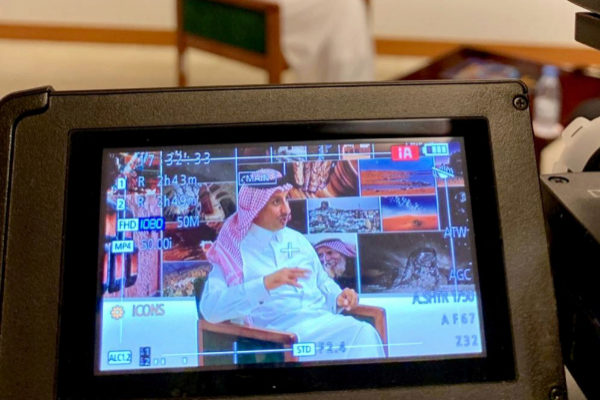- Society: Saudi Arabia will allow women to drive
- International: What the Saudis still cannot do
Saudi Arabia announced on Friday that it will issue tourist visas for the first time, opening the doors of the ultraconservative kingdom to travelers with the aim of diversifying its resources, which currently depend entirely on oil.
Until now, Saudi Arabia only granted visas to pilgrims, expatriate workers and, recently, spectators of sporting events or cultural events.
The development of tourism is one of the main axes of the "Vision 2030" reform program of Crown Prince Mohamed bin Salman, who tries to prepare the largest Arab economy for the post-oil era.
This announcement comes just two weeks after some devastating attacks against several Saudi oil infrastructures, which the United States attributes to Iran and which made the world energy markets falter.
"Opening Saudi Arabia to international tourists is a historic moment for our country," Ahmed al Jateeb, director of tourism , said in a statement. "Visitors will be surprised to discover the treasures we can share: five sites classified as UNESCO World Heritage, a vibrant local culture and an imposing natural beauty."
Less strict clothing
Saudi Arabia will offer online tourist visas to citizens of 49 countries, according to Bloomberg News , which quotes Ahmed al Jateeb.
The kingdom had already taken an opening measure in early August, when it allowed women over 21 years of age to obtain a passport and travel abroad without the permission of a male "tutor." In June 2018, the Saudis had also obtained the right to drive vehicles, a breakthrough in the country.
According to Al Jateeb, the kingdom will relax the clothing standards for foreign women, who can walk without abaya , the traditional tunic that the Saudis must wear in public in a mandatory manner. However, foreign visitors should wear "rotten clothing," he added.
The kingdom, which prohibits alcohol and dictates strict social norms, is not usually considered a very attractive destination for tourism. But Prince Mohamed bin Salman wants to change this perception, and has already promoted several liberal reforms that allowed the opening of cinemas and the organization of concerts or sporting events in the country.
According to experts, international criticisms about the lack of respect for human rights in the kingdom - with the memory of the murder last year of journalist Jamal Khashoggi - could also curb foreign tourists.
For a long time, Saudi Arabia only issued visas for expatriate workers and their families, and for Muslim pilgrims traveling to the sacred places of Mecca and Medina. Last year he began granting visas for spectators of sporting events and concerts, with the aim of starting to develop the tourism sector.
The government, which faces quite low oil prices, expects tourism to develop and account for 10% of Saudi Gross Domestic Product (GDP) by 2030.
Saudi Arabia spent billions of dollars to try to build a tourism industry from scratch.
In 2017, the kingdom announced a project of several billion dollars to transform 50 islands and other virgin sites of the Red Sea into luxury resorts. The country also develops archeological sites such as Madain Saleh, where stone tombs of the same civilization are found as the one built by the famous ancient city of Petra, in Jordan.
According to the criteria of The Trust Project
Know more- Saudi Arabia
- tourism
V CENTENARY What to see and eat in Sanlucar 500 years after the first round the world
Renovation The 'new' Tourist Board of Castellón will have a greater participation of businessmen and municipalities
The route of Friends through New York 25 years later

